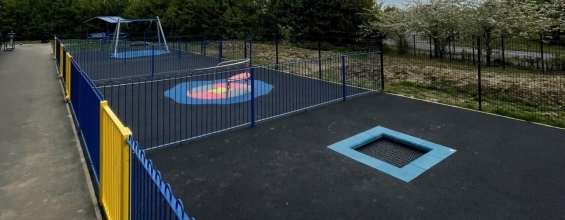
Apr

Why children need to be more active in the school playground
The school playground is the ideal setting for children to start being active and exploring how their bodies work. However, research has found that while some children might do this naturally, others experience barriers that stop them from being active. The right playground environment can help to overcome these barriers and give all children the chance to feel the benefits of being active – there are a number of key reasons why this is important.
- What we do when we’re young tends to stick. Activity levels can begin to decrease from age 7 onward, so whatever children are doing before that time can form the baseline for how likely they are to be active later in childhood – and also in life. Plus, we learn a lot of skills in the playground in our early years so the more active we are, the more we’re likely to be comfortable in our bodies as we grow. These include hopping, jumping, running, throwing and even scooting and cycling.
- The social element. Playing together is often how children form bonds and these are incredibly important in childhood. Many kids say that break times are their favourite times because this is when they get to catch up with their friends. School playgrounds provide lots of important elements when it comes to social interaction. It could be something as simple as making friends and enjoying the way those friendships develop. There are also opportunities to improve communication with others and to learn how to handle disagreements and disputes. Being active in the playground means that children are joining in and this gives them the best possible chance of optimising how they evolve socially.
- Activity = better mental health. Being more active is positive for mental health in both adults and children. But it’s shocking to learn that one in six children between the ages of six and 16 already has a mental health disorder. These can be incredibly tough to handle at a young age and leave a lasting impression throughout adult life. Increased physical activity and more time spent outdoors are both factors in improving mental health and resilience. Plus, these have been positively associated with less anxiety and depression, as well as an increase in self-esteem. Playing games can also help to improve key skills such as problem solving and boost confidence.
- Improving academic achievement. It’s not just learning and study that helps to improve academic achievement in children – physical activity also has a big part to play. Studies have found that an increase in play and activity affects key areas of academic achievement, such as memory, self-control and flexible thinking. It can also provide a key release of energy and tension during break times that then allows children to settle down and focus when they are back in the classroom.
From the impact that activity has on mental health and socialising to the way that it affects academic results, these are just some of the reasons why children need to be more active in the playground.

















